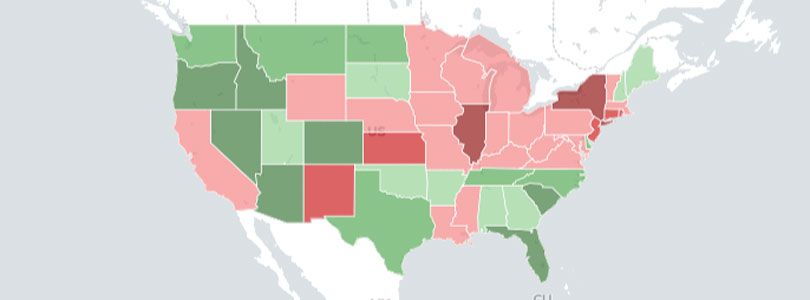2019 Census: States Change Their Populations
This year will bring another politically crucial survey of Rhode Island’s population by the U.S. Census. The reason it’s so important is that the Ocean State is teetering on the brink of losing one of its seats in Congress as it fails to keep pace with national growth.
These numbers should have political consequences for other reasons, too. As Ted Nesi notes on WPRI:
Estimates released Monday by the U.S. Census Bureau showed Rhode Island had 1,059,361 residents as of July 1, an increase of 1,074 or 0.1% compared with a year earlier. The state’s population has grown by 6,794 residents since the 2010 Census.
Once again this year, the overall increase in Rhode Island’s population masked a larger shift in terms of who lives in the state, as the net arrival of international migrants offset the loss of domestic residents. (The Census defines international migrants as including “all foreign-born immigrants and emigrants, regardless of legal status.” It also covers migration between Rhode Island and Puerto Rico, and the movement of military members.)
Put differently, Rhode Islanders are leaving for other states, but they’re being replaced by people who are arriving from other countries.
From 2018 to 2019, Rhode Island lost 0.3% of its population to other states, or 3,215 Rhode Islanders gone. On the other hand, the Ocean State gained 0.3% in population from other countries, or another 3,645 new Rhode Islanders arrived. Over time, this is changing the nature of our state.
The following two interactive graphics tell the story from 2010 to 2019. The first shows the percentage of population change due to domestic migration, and the second shows the percentage change due to international migration. Rhode Island lost 3.8% of its population (39,790) to other states but replaced them with 3.5% of its population (36,913) from other countries.
Although the effect is more pronounced looking at just the latest one-year numbers, there is an interesting general correlation between states that lost population domestically and those that gained it internationally. That suggests this isn’t just states with thriving economies’ being more attractive. That probably is the case domestically, but something else must be attracting new residents from across the border.
From the point of view of Rhode Islanders, we would do well to start asking our elected officials why they pursue the policies that are driving us and our neighbors away while creating an attractive relocation opportunity for others. Perhaps states that choose not to be competitive for Americans change their focus in order to back-fill their losses with migrants from countries that are easier to compete with.




